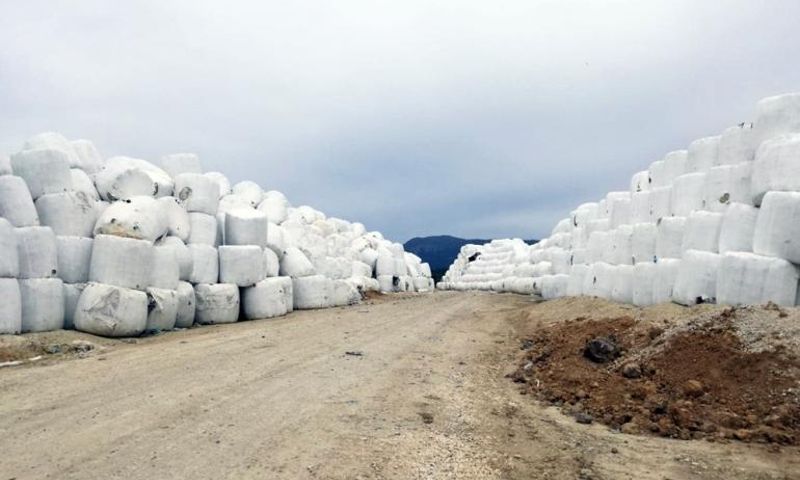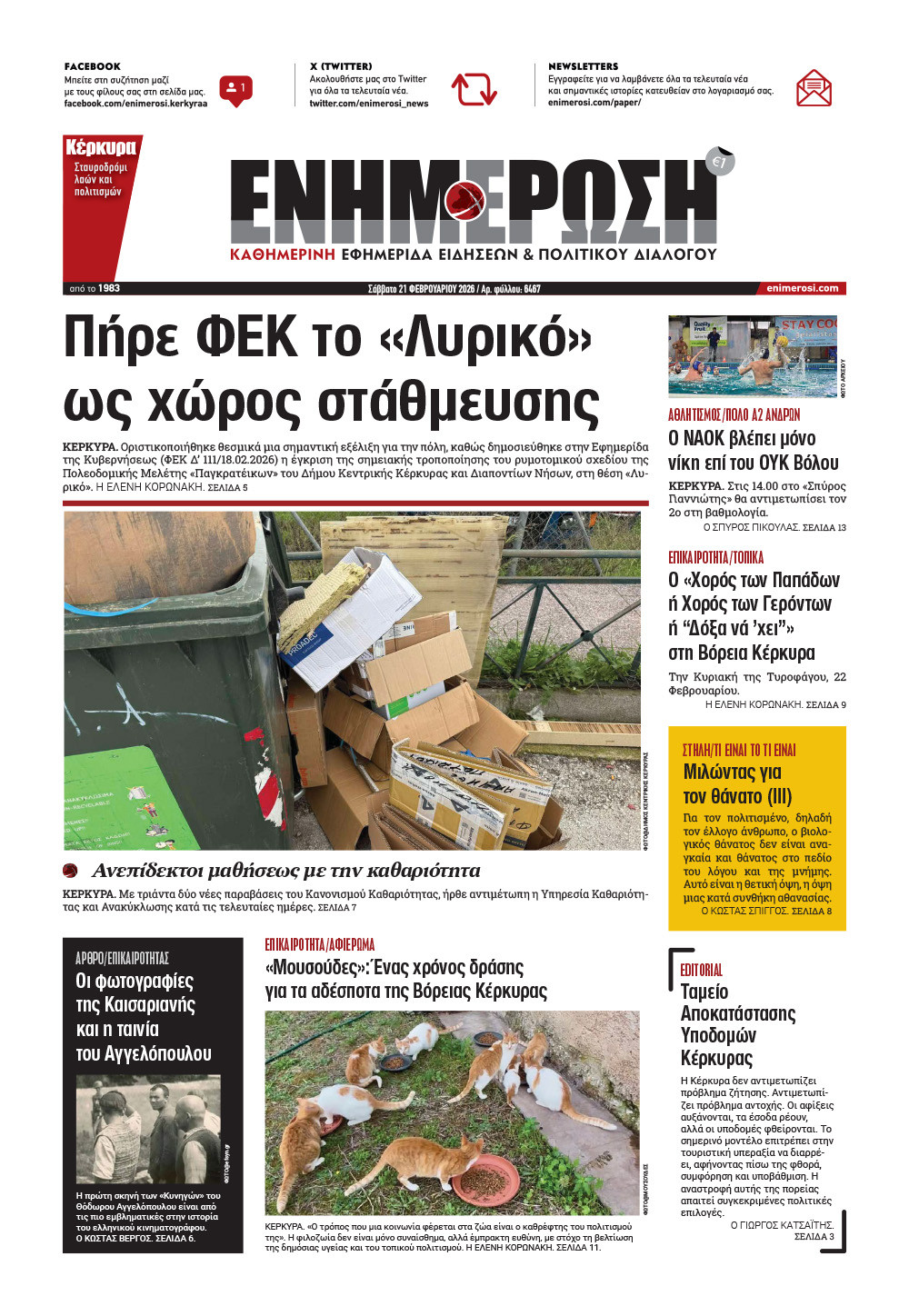Temploni under Demokritos ΄microscope΄ for 36 months

Temploni
07 Jul 2021
/ 16:56
CORFU. A complete survey of the environmental situation in Temploni and the surrounding area.
'Demokritos' National Centre for Scientific Research is beginning an extensive 36-month research into and monitoring of the environmental situation in Temploni and the surrounding area.
A team headed by the Research Manager and Head of the Laboratory for Mass Spectrometry and Dioxin Analysis at the 'Demokritos' National Centre for Scientific Research Leontios Leontiadis will be in Corfu on July 19, in order to conduct sampling and analysis not only at the Temploni landfill but also within a 10km radius.
“This is the first working meeting and inspection in the area, in order to divide the
work in cooperation with the relevant Directorates of the Region," Deputy Regional Governor for Energy, Environment and Spatial Planning, Spyros Ioannou told Enimerosi. "The inspections include measurements of air quality, specialised analyses of surface and groundwater, as well as livestock (milk, meat) and olive products. Next Monday, a meeting will be held with the Heads of the Directorates to coordinate the moves and measurements to be carried out”.
7-month delay
However, as the Temploni Cultural Society President Magda Papanikolopoulou says, the inspections will start after a 7-month delay, because although the Regional Authority had announced that the first sampling and analysis would take place within the first half of January 2021, it never actually happened.
According to Mr. Ioannou, the reason for the delay was that compared to Cephalonia, where the team went immediately because the inspection was ongoing, in Corfu a number of elements were required in order for the full inspection to be conducted, such as recording of the wider area’s population data and the businesses of all kinds and types within a radius.
It should be noted that the presence of Demokritos was urgently requested by the residents of the area after the two major fires that broke out at the Temploni landfill last summer, and later, due to the results of tests carried out in a private laboratory, which detected heavy metals (lead, mercury, iron) in oil, olives and water.
However, State General Chemical Laboratory measurements were not provided, noted Mr. Ioannou.
A team headed by the Research Manager and Head of the Laboratory for Mass Spectrometry and Dioxin Analysis at the 'Demokritos' National Centre for Scientific Research Leontios Leontiadis will be in Corfu on July 19, in order to conduct sampling and analysis not only at the Temploni landfill but also within a 10km radius.
“This is the first working meeting and inspection in the area, in order to divide the
work in cooperation with the relevant Directorates of the Region," Deputy Regional Governor for Energy, Environment and Spatial Planning, Spyros Ioannou told Enimerosi. "The inspections include measurements of air quality, specialised analyses of surface and groundwater, as well as livestock (milk, meat) and olive products. Next Monday, a meeting will be held with the Heads of the Directorates to coordinate the moves and measurements to be carried out”.
7-month delay
However, as the Temploni Cultural Society President Magda Papanikolopoulou says, the inspections will start after a 7-month delay, because although the Regional Authority had announced that the first sampling and analysis would take place within the first half of January 2021, it never actually happened.
According to Mr. Ioannou, the reason for the delay was that compared to Cephalonia, where the team went immediately because the inspection was ongoing, in Corfu a number of elements were required in order for the full inspection to be conducted, such as recording of the wider area’s population data and the businesses of all kinds and types within a radius.
It should be noted that the presence of Demokritos was urgently requested by the residents of the area after the two major fires that broke out at the Temploni landfill last summer, and later, due to the results of tests carried out in a private laboratory, which detected heavy metals (lead, mercury, iron) in oil, olives and water.
However, State General Chemical Laboratory measurements were not provided, noted Mr. Ioannou.












